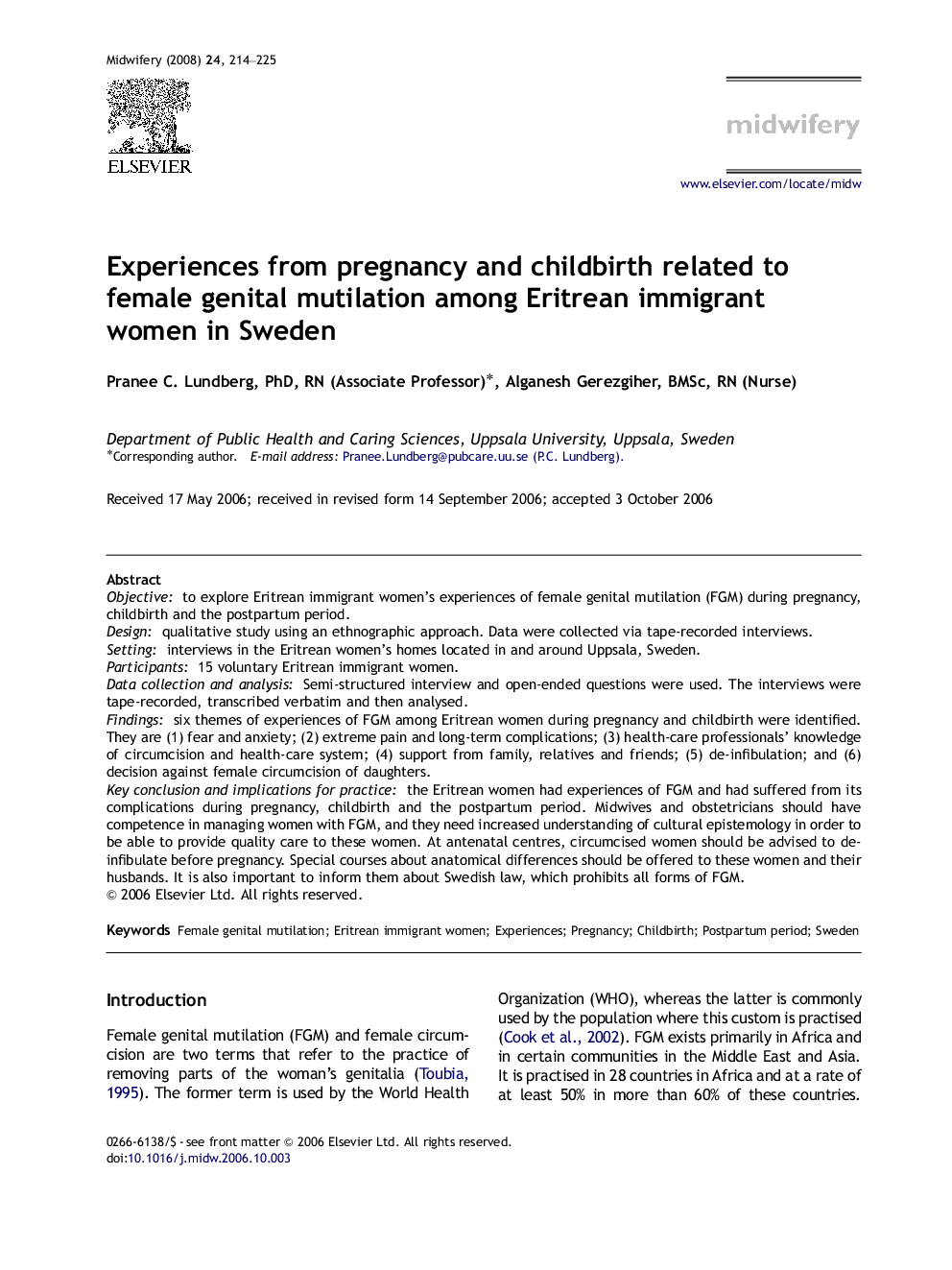| Article ID | Journal | Published Year | Pages | File Type |
|---|---|---|---|---|
| 1084832 | Midwifery | 2008 | 12 Pages |
Objectiveto explore Eritrean immigrant women's experiences of female genital mutilation (FGM) during pregnancy, childbirth and the postpartum period.Designqualitative study using an ethnographic approach. Data were collected via tape-recorded interviews.Settinginterviews in the Eritrean women's homes located in and around Uppsala, Sweden.Participants15 voluntary Eritrean immigrant women.Data collection and analysisSemi-structured interview and open-ended questions were used. The interviews were tape-recorded, transcribed verbatim and then analysed.Findingssix themes of experiences of FGM among Eritrean women during pregnancy and childbirth were identified. They are (1) fear and anxiety; (2) extreme pain and long-term complications; (3) health-care professionals’ knowledge of circumcision and health-care system; (4) support from family, relatives and friends; (5) de-infibulation; and (6) decision against female circumcision of daughters.Key conclusion and implications for practicethe Eritrean women had experiences of FGM and had suffered from its complications during pregnancy, childbirth and the postpartum period. Midwives and obstetricians should have competence in managing women with FGM, and they need increased understanding of cultural epistemology in order to be able to provide quality care to these women. At antenatal centres, circumcised women should be advised to de-infibulate before pregnancy. Special courses about anatomical differences should be offered to these women and their husbands. It is also important to inform them about Swedish law, which prohibits all forms of FGM.
